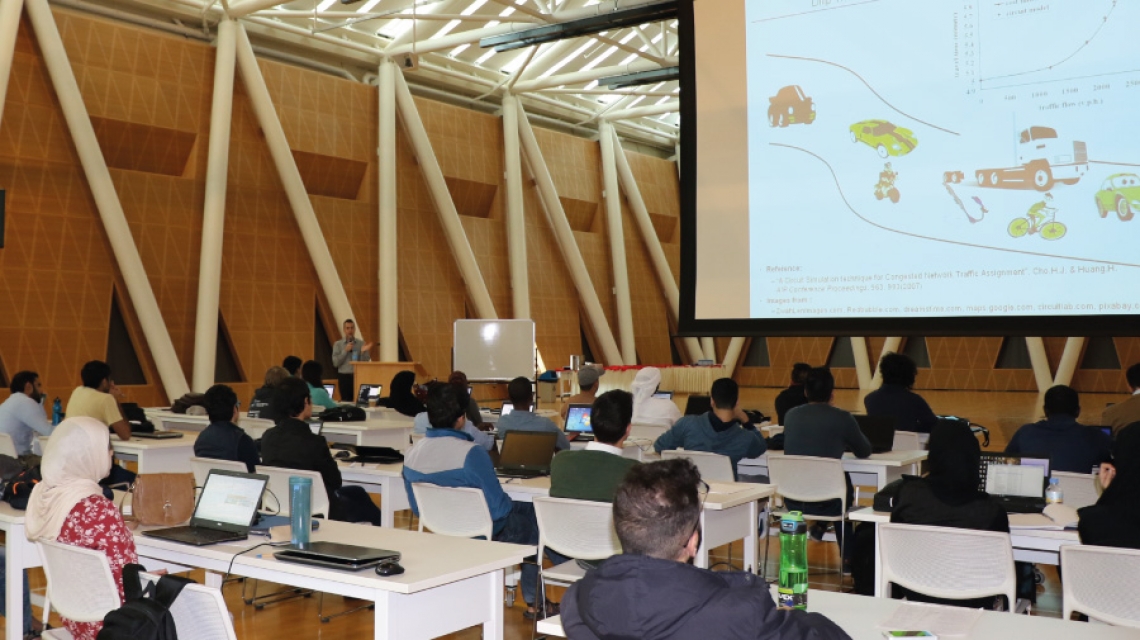
Visiting faculty from the Massachusetts Institute of Technology (MIT) led an intensive course for nearly 50 Masdar Institute students focused on developing their practical implementation skills for complex dynamical systems.
The course, which took place from 4-6 January 2016, aimed to assist students with research projects involving analysis, design and optimization problems in a variety of different engineering and science disciplines dealing with complex systems. It was taught by Dr. Luca Daniel, Professor, Department of Electrical Engineering and Computer Science at MIT.
“Coming to Masdar Institute to teach this short interdisciplinary course on modeling and simulation of complex dynamical systems has been a truly fantastic experience. I was able to experience first-hand how passionate, knowledgeable, smart, creative and motivated Masdar Institute students are” said Dr. Daniel.
“I was lucky to have a considerable attendance and active participation of 46 students from almost all departments, showing the great interest in an interdisciplinary approach to science and technology and showing that students love working together in teams with people from different backgrounds,” he added.
Students across all disciplines and programs at Masdar Institute were invited to attend to learn different ways of thinking and ideas in interdisciplinary research related to the modeling and simulation of a complex system. The course was organized to provide students with the interdisciplinary skills needed to allow them to develop their knowledge and expertise in a wide range of areas while working with students from other program specialities.
Dr. Ibrahim Elfadel, Professor of Microsystems Engineering at Masdar Institute, who organized the course said: “The student turnout for this course was heartening and is also evidence of the need for the development of more Institute-wide multidisciplinary courses in support of our academic and research programs. I am looking forward to our students gaining further cutting-edge knowledge and hands-on experience in the formulation and software implementation of the large-scale, complex mathematical equations that describe the behavior of real-world engineering components and systems, be they electrical, mechanical, chemical, biological, or environmental.”
Complex systems are large-scale natural or engineered systems whose descriptions require highly sophisticated mathematical and computer models. The study of complex systems involves the analysis of individual system components, how they interact together to function and how they interact with their surrounding environment. Some examples of complex systems include microprocessors, power distribution grids, transportation networks, the human cardiovascular system and the geophysical network of water reservoirs.
Ciara Sutton
News and Features Writer
28 January 2016